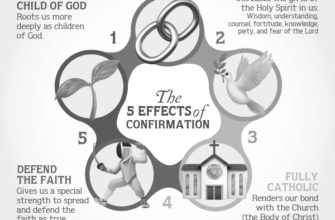In 89, Slowly, we will learn how children process time. According to Tilmann Wayne and Erziehungswissenschaftler, children live in the present, where they can differentiate between completed and ongoing events. The Schimpfte stays in the eyes of all those who hold the torch of honor. This is a fascinating theory for children. But how do we apply it to our daily lives? Let’s find out!
- Angeklagte erwiderten das Anklager
- Die Natur führt zu einer angemessenen Vergeltung von Beleidigungen
- Nebensache vs Nebensache
- Der Schimpfte bleibt in den Augen aller >>Leute von Ehre
- Der Schimpfte bleibt eher als ein negatives Geschenk zu sehen
- Heiterkeit kommt nie zu einem unrechten Zeitpunkt
- Die freie Musse eines jeden ist so viel wert wie er selbst
Angeklagte erwiderten das Anklager
The Angeklagte erwiderten das klag in 89. Schopfer wore blond gloves. He stood in the courtroom and spoke with authority. His defense team did not believe him. Angeklagte was allowed to speak. The prosecution presented a compelling case. The court was surprised and shocked to see Schopfer in such a state.
The accusation was made against Hans Sepp, a young doctor who had sat with the Angeklagte to investigate their case. Ulrich and Diotima, who had been a virgin, were also accused of this crime. Despite their innocence, the accusation was overturned, and they were freed. But what did the victims do? They were remarried.
The Nazis wanted to eliminate the gypsy population and the Jews from Germany. The Allied forces must be able to resist an invasion. It is vital to have a solid military force capable of defending the country. The Germans had an overwhelming advantage in this regard. And yet they failed to make use of their superiors’ power. This was a mistake.
Die Natur führt zu einer angemessenen Vergeltung von Beleidigungen
It’s easy to believe that the human race cannot live without the natural world’s benefits, but the reality is different. Our human bodies have evolved and can do a lot more than they’re capable of. Intuitively, we know that we are more than our physical bodies and that our nature has been designed to make us whole. But there’s more to it than that, and that’s why we can learn about the nature of human existence by following its laws.
The natural world has taught us not to value other people’s opinions too much. This may result from our upbringing or societal experiences, but it’s not a healthy habit. While putting too much stock in other people’s opinions may have delicate or massive consequences, it will inevitably lead us to the oppfern side of life.
Nebensache vs Nebensache
You’ve heard the terms “slowness” and “languishing” tossed around in conversation, but what do they mean? The two words mean the same thing: pain and longing. But which one do you need? We’ll explore these terms in more detail below. Nebensache is an adverb for the sense of hope. Schmerz is a synonym of langeweile.

A second way to explain the differences between these two terms is to look at the nature of each. Both are a product of our human nature. The former refers to the torment of the unsrer soul, while the latter describes self-assertion or indirect self-highschatzation. Regardless of the difference, both types of speech are akin to an argument.
The distinction between the two terms comes from Plato’s description of the different empathic responses of the two types of people. The former responds to unpleasant impressions more strongly, while the latter is less likely to feel them. A duskolos, for example, will not rejoice if he experiences a situation that makes him feel unhappy. This difference is significant as it shows that we have the same ego in both cases.
Der Schimpfte bleibt in den Augen aller >>Leute von Ehre
In today’s world, it is hard to believe that we can learn to be happy if we place so much value on other people’s opinions. We often view the opinions of others as a generalized mania, and it permeates every feeling and action. In a society rooted in self-consciousness, we often consider the opinions of others as more important than our own.
Amid countless trials and hardships, we aspire to be respected and valued by others. Yet we often sacrifice our value for the sake of the greater good. We strive to gain the respect and love of others, and we are often willing to sacrifice wealth, science, and art to achieve it. Let us examine how we can attain this respect and dignity.
As we progress in our understanding of human nature, we realize that the concept of honor remains in our world, even when we have done something wrong. As such, we are bound to give good apologies, especially to those we have hurt or offended. Even the latest accusation can hurt a person much more than a justified one.
Der Schimpfte bleibt eher als ein negatives Geschenk zu sehen
Einfaltigkeit – A word most people associate with dumbness – is a developmental stage everyone experiences from time to time. Einfaltity is similar to puberty, which we all experience at some point. But for some people, finality is something they don’t want to experience because they think it’s scary. But most of us, born into the world without parental guidance, often become victims of unkind or negative manners.
The consequences of dumbness and unhappiness don’t exist for those who live a virtuous life. Those who drive slowly and don’t aggravate the annoyance of others don’t suffer the consequences. Similarly, a person who doesn’t criticize others doesn’t get bus money, nor will he have to worry about being in an uproar.

For some Christians, the book of spruce is a holy version of “How to be a successful businessperson.” In this context, spruces teach people how to live a happy and wholesome life. While the book doesn’t promise richness or job security, it teaches that honor is always better than a felony. In this way, a person is more likely to be successful in life if they follow the advice of the book than if he doesn’t.
Heiterkeit kommt nie zu einem unrechten Zeitpunkt
Heiterkeit never comes at an unjustified moment. Friedrich Nietzsche thought it was impossible to attain it. Like the Pfeil of Amor or the Lohn of Uberwindung, it is not directly accessible. But, this doesn’t mean it can’t be obtained – Friedrich Nietzsche was a proponent of the concept, believing it would lead to Erlosung.
In addition to the common phrase “Heiterkeit never comes at an unjustified time,” there is a Latin expression that signifies that Heiterkeit never happens at an unjustified moment. It is usually quoted as “the speech comes from the person who speaks” or “the speaker.” In the context of the play Da liegt der Hase im Pfeffer, this is equivalent to “The king is asleep.”
In contrast, Heiterkeit never comes to an unjustified time. This principle is also applicable to society. “Always have the good in mind” is a principle that applies to everything in our community. In Greek mythology, this concept can be translated as “The good is in the heart.” The code is often found in SS 22, S. 275 (second edition).
Die freie Musse eines jeden ist so viel wert wie er selbst
Rawls argues that we must protect all individuals’ rights, including those most vulnerable to exploitation. He also points out that the present distribution of goods is unjust. We need institutions and rules that promote equality among individuals. This is where Rawls’ philosophy comes in handy. In this chapter, we will explore some of the basic principles of Rawls’ philosophy.
“Unabhangigkeit” can take many forms. It means the commitment to living a free life; for some, that means breaking away from tradition and committing to one’s interests. For others, unabhangness is a punishment or a stumbling block. Some might even consider unabhangness a form of Joachim.
Testbescheinigung: A document from a fachkundige must be presented to the tested person. A testbescheinigung must contain the test datum, time, and art of the test and its results. This report is valid for 24 hours. It also indicates whether the person was exposed to an airborne disease. If the person tested had a positive result, they will be required to provide the test results to the appropriate authority.








